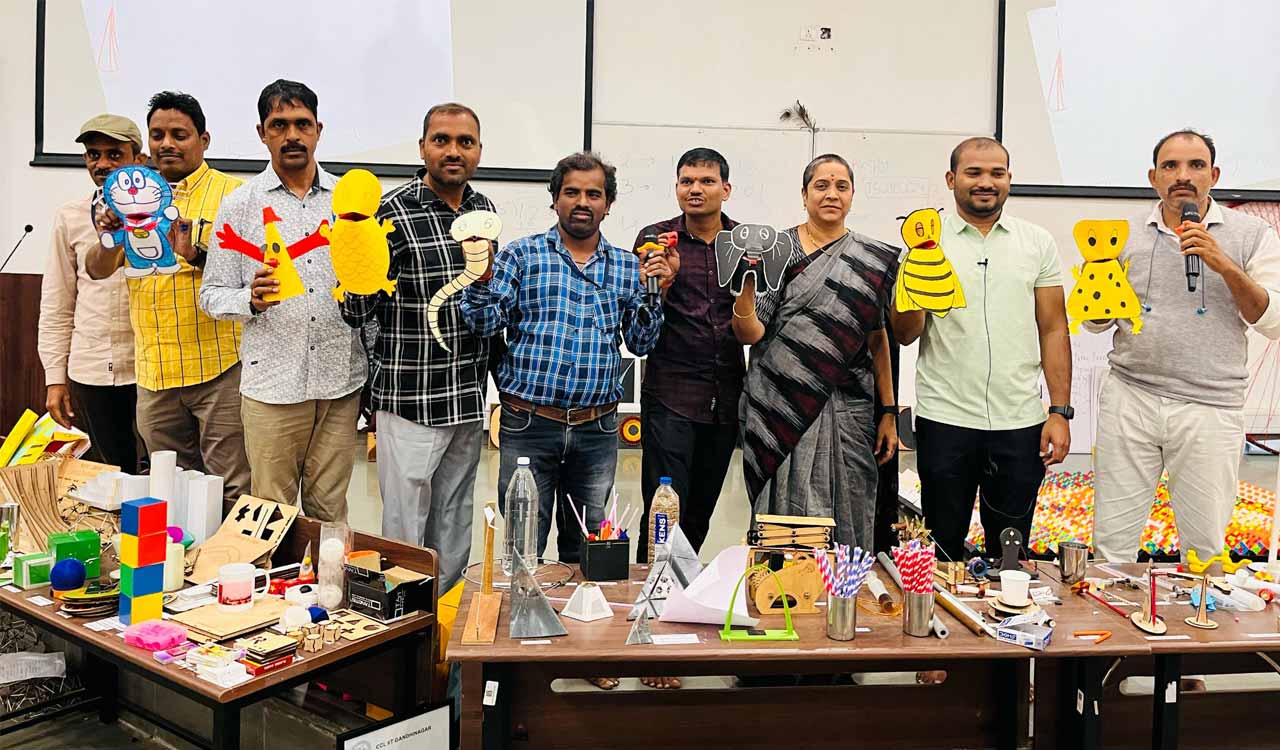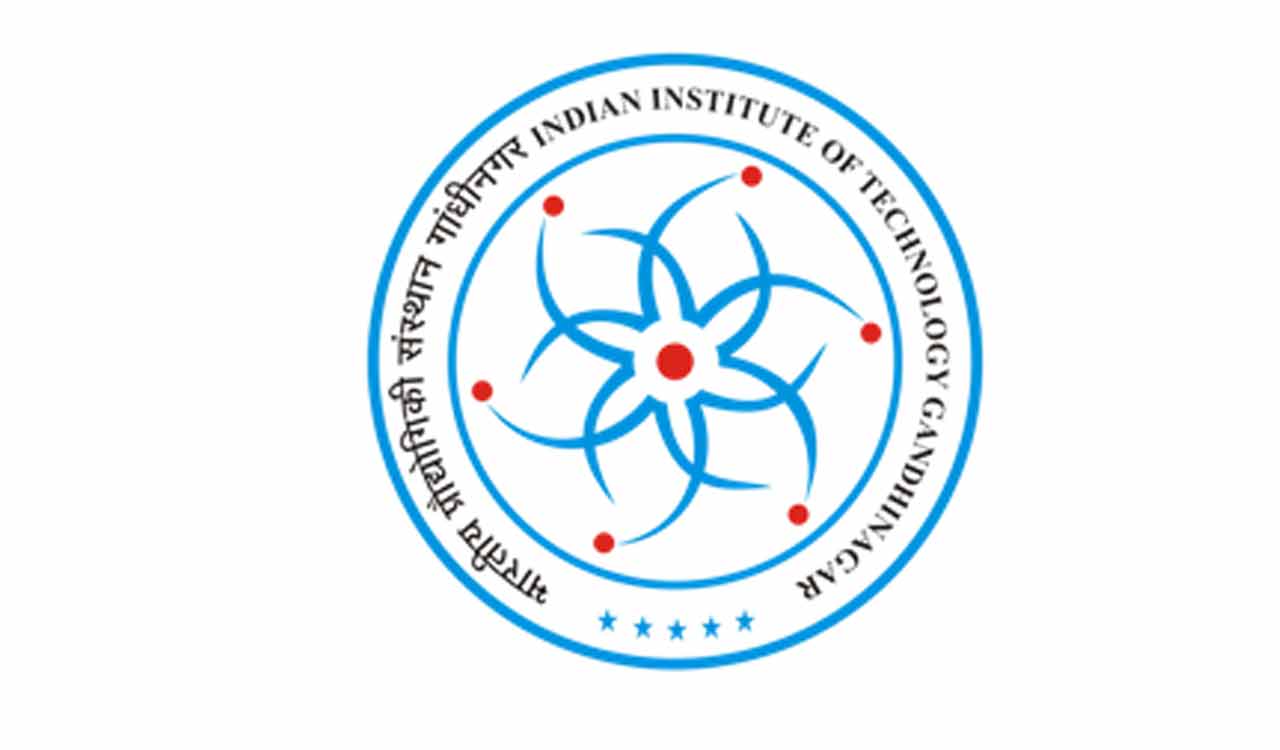IIT Gandhinagar researchers develop economical seawater desalination technique
Gandhinagar: Inspired by tree’s natural intake of water that uses the capillary effect, a team of researchers at the Indian Institute of Technology, Gandhinagar (IITGN) have developed a cost-effective and environment-friendly water desalination technique. This method can successfully remove more than 99 per cent of salt ions and other impurities with natural processing to make seawater […]

Gandhinagar: Inspired by tree’s natural intake of water that uses the capillary effect, a team of researchers at the Indian Institute of Technology, Gandhinagar (IITGN) have developed a cost-effective and environment-friendly water desalination technique.
This method can successfully remove more than 99 per cent of salt ions and other impurities with natural processing to make seawater potable.
With rising demand for potable water and continuously shrinking freshwater resources, more and more countries are turning towards desalination of seawater to meet the needs.
The widely used reverse osmosis (RO) technique for desalination is expensive, wastes more water, and is highly energy-intensive, which typically requires hydrostatic pressures of 60-80 bar.
Motivated to find an alternative and affordable solution to these issues, a research team led by Gopinadhan Kalon, Assistant Professor, Physics and Materials Engineering, IITGN, created a desalination technique which has flow rates comparable to RO technology, that, too, without using electricity, involving less process filters and less wastage of water.
The water evaporation and water filtration processes used in this technique do not involve any electricity.
The research team, that includes IITGN PhD scholars Lalita Saini, Aparna Rathi, Suvigya Kaushik and a Postdoctoral fellow Siva Sankar Nemala, was inspired by the trees’ natural intake of water that uses capillary effect.
Selective transport of molecules and ions is commonly observed in biological systems. The research team used capillary process in the technique, which does not cost any energy, and the evaporation of water happened spontaneously without the need of any external pressure.
The evaporation rates provided a back-calculated pressure of 50-70 bar arising from the capillary and other forces that are present inside the nanoscale channels.
Explaining the technique further, first author of the research paper, Lalita Saini,
said, “Natural graphite is not absorptive to water or any ions, including protons. However, by its nature, the graphite crystal also does not allow any water molecules to pass through it because there is not enough space for the movement of these molecules.”
“This issue was solved by using an electric field and inserting potassium chloride ions in it, which create some space inside the graphite crystal and provide a stable structure for easy passage of water molecules, at the same time hindering the movement of any salt ions and providing drinkable water,” Saini added.
The researchers found that this technique is self-sufficient and can successfully remove more than 99 per cent of salt ions and other impurities from seawater, making it completely safe for drinking. Moreover, carbon materials like graphite are anti-microbial, reducing the number of filters required in the desalination process.
Carbon is abundant in nature and India is the second largest producer of graphite in the world. The current experiment has utilised natural graphite. However, the team is also devising a method that does not require the use of natural graphite; instead they can synthesise graphene (one-unit layer of graphite) from waste, plastics, wheat, sugar, chocolate etc., and assemble it to make graphite-like structure.
The water evaporation and filtration processes used in this technique do not involve any electricity, and therefore it does not produce any gas emissions, making it environment-friendly. The team is now working to develop a direct point-of-use water filter using this technique to make it accessible for the people.
Explaining the significance and usefulness of this innovation in future applications, Gopinadhan Kalon said, “Our method is not only limited to graphite but also to a large number of layered materials like clay that could be explored for high performance separation applications. With abundant seawater and appropriate plant design optimisation, our method holds a bright future in realising the dream of drinking water for everyone on the planet.”
Moreover, this technique can also prove to be useful in designing filters for gas purification, proton exchange in a fuel cell, chemical separation, recovery of precious metal from waste etc.
Related News
-
Cat stranded on Kochi Metro Rail pillar rescued
48 seconds ago -
After top court blow, Trump seeks 15% global import tariff
9 hours ago -
One year on, no closure for SLBC victims’ families
9 hours ago -
India face South Africa in crucial T20 World Cup Super Eight clash
10 hours ago -
Rain forces washout in New Zealand-Pakistan T20 World Cup match
10 hours ago -
Hyderabad’s Nehru Zoological Park welcomes real-life ‘Rafikis’
10 hours ago -
India clinch first Women’s T20I series victory in Australia since 2016
10 hours ago -
Sowmya selected for Indian women’s football team for AFC Cup 2026
10 hours ago




